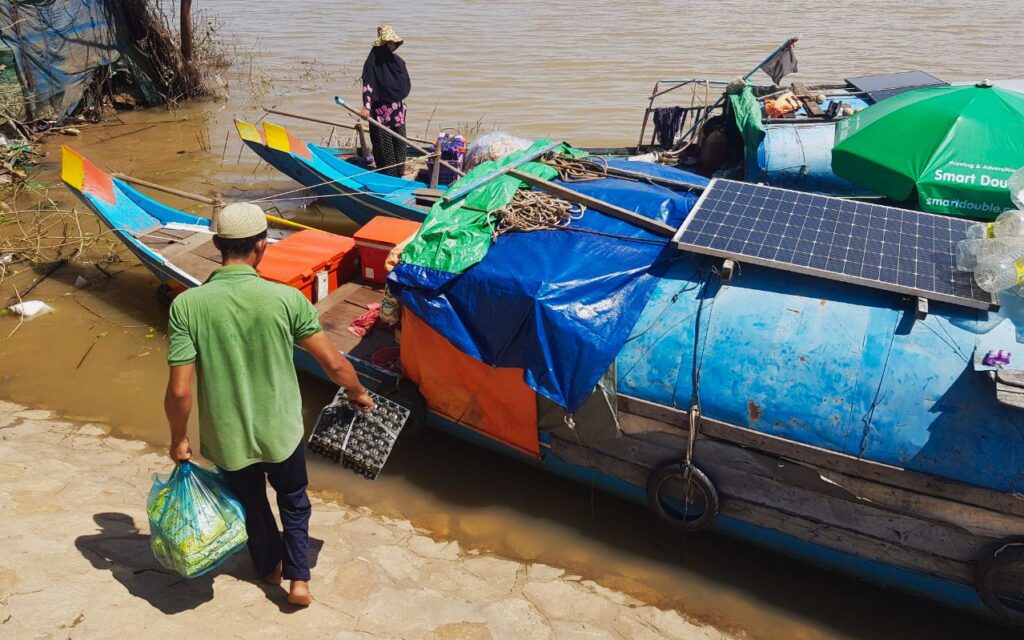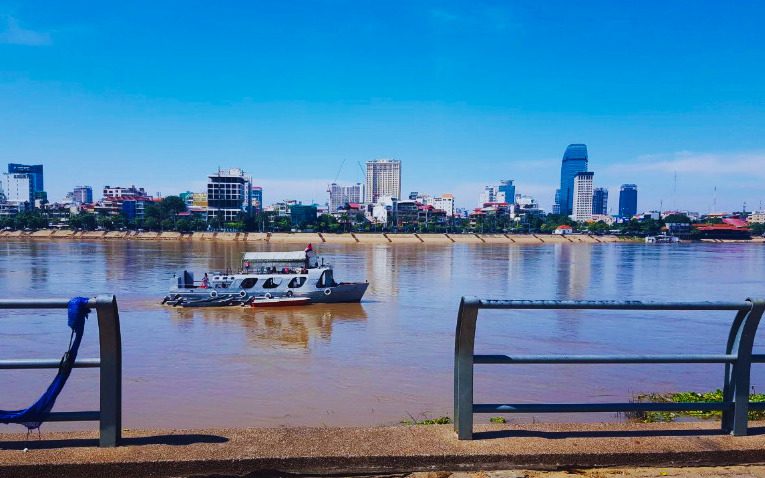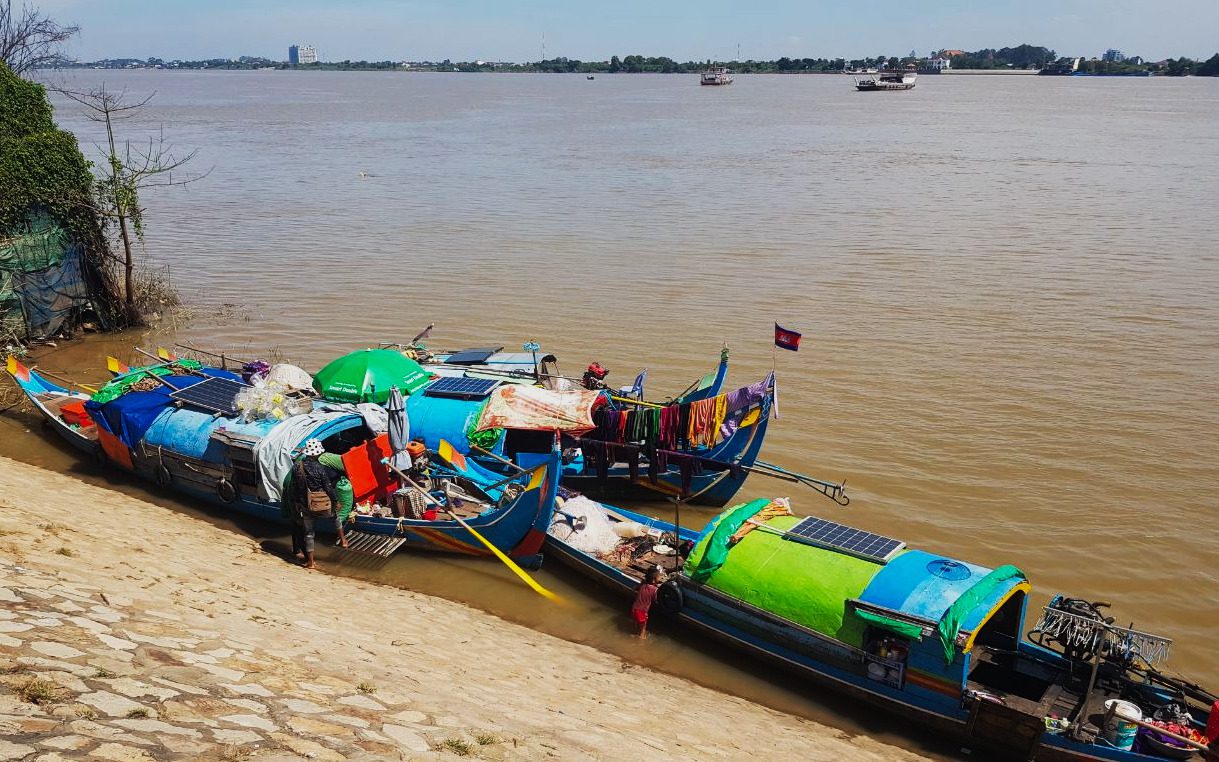Off the banks of Phnom Penh’s Chroy Changva peninsula, in the shadow of the famous Sokha Hotel, the ubiquitous fishing boats and sand dredgers have been replaced by military vessels, and local fisherpeople have been asked to temporarily clear the area with no compensation until the Asean Summit is over.
“They stay in the Sokha Hotel, and they look out the window and see boats. It’s messy, chaotic — it doesn’t look good,” said Sa Viyas, a 35-year-old woman who was asked by authorities to leave the tip of the peninsula over the weekend. She lives on a boat with her family and another family, with 10 children between them. Like many of these boat-dwelling people, they are Cham people, a predominantly Muslim minority group with their own language and history distinct from Khmer, and who have often been targeted for relocations. Many of them were born on boats, and have traditionally handed down their semi-nomadic lifestyle for generations.
Rous Pokharry, another fisherman, said that his old home by a new market nearby was taken from him over a year ago, but he was told he could live on his boat near Sokha Hotel. Yesterday, he was told he had to leave for at least a week. He said he was told he could move his boat to a spot only about a kilometre away, but said that location was too treacherous and his boat could sink.
On Monday, the fishers were still not far from the Sokha Hotel, gathering supplies and preparing to move farther afield as required. Others in more visible areas near the ferry terminal were already gone.
“It impacts our living, but what can we do?” Pokharry said. Authorities have told them that they are not allowed to fish or scavenge in the area until the conclusion of the Asean Summit. On top of this, the nearby market is being shut down and even pancake-selling boats have been told to discontinue. Many of the estimated 300 families who docked their boats in the area left with few options to earn an income.


The explanation they were given was that in order to protect the foreign dignitaries and heads of state who will be coming to Phnom Penh, the waters around key locations have to be cleared, otherwise assassins or terrorists could disguise themselves as fisherpeople and launch an attack or infiltrate the proceedings, they said. As such they have had to make way for the small fleet of navy patrol boats now visible along the riverfront. Some say they were told they could come back after a week, others were told after two.
Chroy Changva commune chief Mao Buntha acknowledged the fishers were being moved out and that this could be difficult for them. But it was necessary for security, Buntha said.
“It genuinely impacts our brothers’ and sisters’ living conditions, but this is for the national image … so sometimes we force ourselves to beg them to understand, explain to them, and sometimes some of them do understand while some do not understand,” he said. “Chroy Changva is the host, so we need to sacrifice.”
Street vendors along key roads had also been notified to suspend their sales, and vehicles and equipment would also be cleared, he said.
“It’s their meeting, but it’s our lives that are difficult,” said Kok Sa Ily, another Cham boat dweller. She said that if they ran out of money they would have to sell things from their boat, such as fishing equipment. Generally, one family can expect to earn $10-$25 from a day’s fishing haul. Some families, she explained, already have no money left.
“We need to endure the suffering,” said Ou Smas, who was on the same boat. “We are desperate.”












